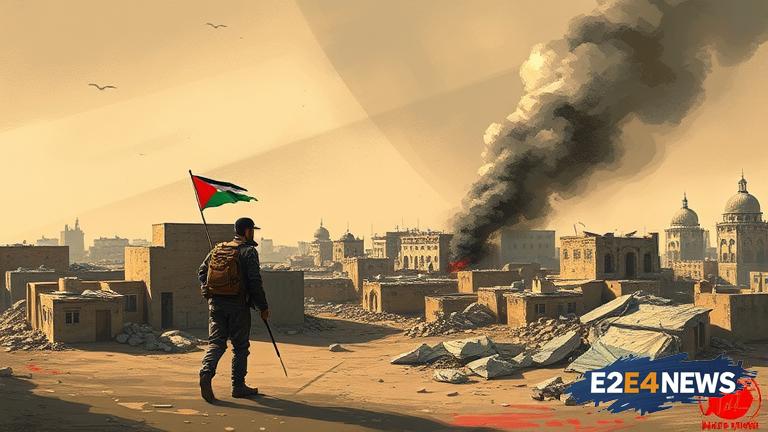The recent proposal to permanently displace Palestinians from their homes in Gaza has sent shockwaves throughout the region, threatening to derail the already fragile truce. The plan, which has been met with widespread criticism, aims to relocate thousands of Palestinians to other areas, citing security concerns and the need for a permanent solution to the conflict. However, many have argued that this plan is nothing short of ethnic cleansing, and that it would only serve to exacerbate the existing humanitarian crisis in Gaza. The truce, which was brokered after months of intense fighting, has been precarious at best, with both sides accusing each other of violating the terms of the agreement. The proposed plan has only added to the tensions, with many Palestinians viewing it as a blatant attempt to erase their presence from the region. The international community has also weighed in on the issue, with many countries and organizations condemning the plan and calling for a more nuanced and sustainable solution to the conflict. The United States, in particular, has been criticized for its role in supporting the plan, with many arguing that it is undermining the prospects for a lasting peace. The European Union, on the other hand, has been more vocal in its opposition to the plan, with many of its member states calling for a more balanced approach to the conflict. As the situation continues to unfold, it remains to be seen whether the truce will hold, or whether the proposed plan will ultimately derail the fragile peace. The humanitarian consequences of such a plan would be catastrophic, with thousands of Palestinians facing displacement and uncertainty. The plan has also been criticized for its lack of consideration for the rights and dignity of the Palestinian people, who have already suffered greatly as a result of the conflict. Furthermore, the plan has been seen as a clear violation of international law, which prohibits the forced displacement of civilians. The Israeli government has defended the plan, citing security concerns and the need to protect its citizens. However, many have argued that this is nothing more than a pretext for a broader agenda of displacement and annexation. As the international community continues to grapple with the implications of the plan, it is clear that a more sustainable and equitable solution to the conflict is needed. This will require a commitment to upholding the rights and dignity of all parties involved, and a willingness to engage in meaningful and constructive dialogue. The fate of the truce, and the future of the region, hangs in the balance, as the world waits with bated breath to see how the situation will unfold. In the meantime, the Palestinian people continue to suffer, caught in the midst of a conflict that seems to have no end in sight. The need for a lasting and just peace has never been more pressing, and it is imperative that the international community comes together to support a solution that prioritizes the rights and dignity of all parties involved.
